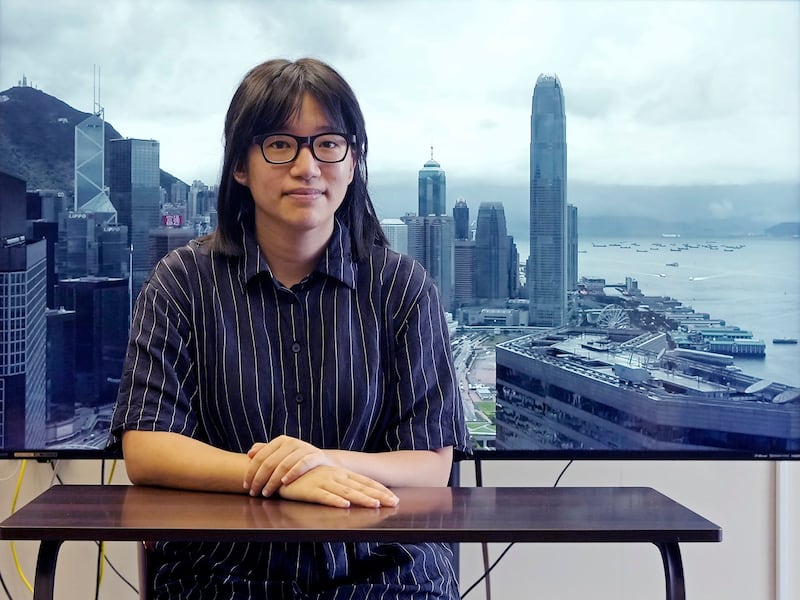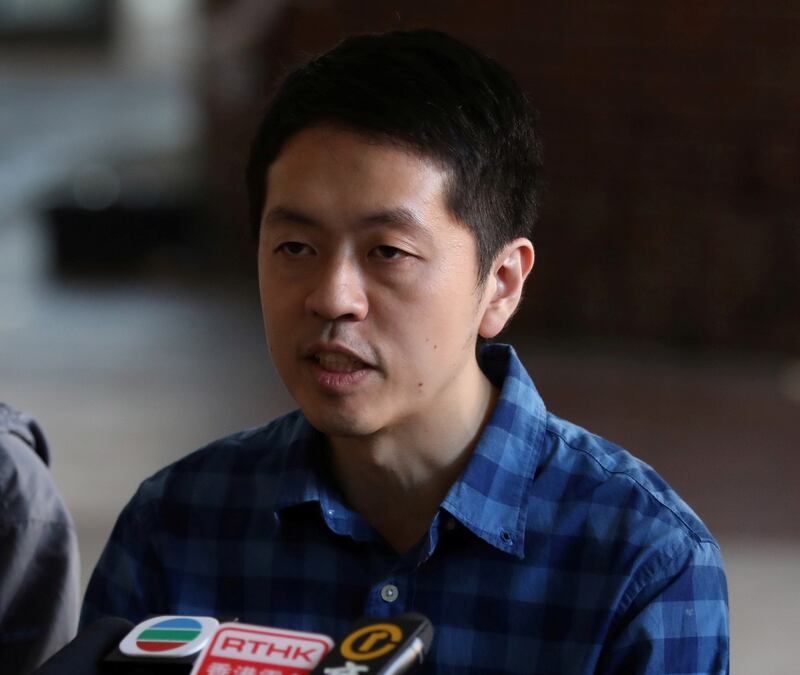Hong Kong's leader on Thursday said his city is poised to step up a crackdown on foreign "wolves" trying to undermine its stability, as a top court reinstated a prison sentence handed down to human rights lawyer Chow Hang-tung, a key figure in the pro-democracy movement.
"I really think Hong Kongers have been a bit too gentle," Chief Executive John Lee told lawmakers during a question-and-answer session about additional national security legislation on Thursday, referring to his government's claim that the 2019 pro-democracy movement was a bid by "hostile foreign forces" to undermine it.
"They didn't realize how dangerous the world is, how many villains there are," Lee said. "They didn't know that the wolves were in charge, that a tiger was eying up the fat pig that was Hong Kong."
"But we have experienced it, especially the pain of 2019 [which] made us realize that we must protect ourselves against these villains, against hostile forces and espionage," he said, in a session convened to explain new security laws to be passed under Article 23 of the city's Basic Law.
Lee continued: "Hostile forces are watching and waiting for an opportunity, so we must seize the opportunity to legislate as soon as possible."
He said that while the city appears calm today, "undercurrents" of dissent remained, citing China's top official in charge of Hong Kong, Xia Baolong, and that "soft confrontation" remains a potential threat.
"We need to always be wary ... of anti-China disruptive activities in Hong Kong ... in the guise of so-called human rights, freedom, democracy and people's livelihood," Lee said, adding that the new legislation should take priority over measures to boost the city's economy.
Blows to rule of law
His comments came as the city's Court of Final Appeal overturned the acquittal of rights activist Chow Hang-tung, in what rights groups said was "another blow to the rule of law in the city."
The court overturned an earlier decision acquitting Chow on charges of "inciting" people to take part in a banned vigil marking the anniversary of the 1989 Tiananmen massacre, in what London-based rights group Amnesty International said was "the latest injustice" against her.
Chow is a former leader of the Hong Kong Alliance in Support of Patriotic Democratic Movements of China, which disbanded after authorities used the annual Tiananmen candlelight vigil it had organized for 30 years as evidence it had “endangered national security”.
Chow also faces charges of “inciting subversion” under the 2020 National Security Law, for which she faces a potential life prison sentence.

"The disappointing ruling announced today is the latest injustice against Chow Hang-tung, who remains unjustly detained on separate charges under the National Security Law for her entirely peaceful actions," the group's China director Sarah Brooks said in a statement.
“The Hong Kong authorities must drop all charges against her, ensure she is free from torture and other ill-treatment and release her," she said.
Amnesty International and possibly even Greenpeace are among foreign organizations being eyed as potential national security threats by the Hong Kong government, the city's Ming Pao newspaper reported on Thursday.
More dangerous law
The paper cited government sources as saying that the two groups would likely be placed on a list of "foreign political organizations" once the Article 23 legislation has been passed, a near-certainty due to the lack of political opposition in the Legislative Council.
Former Amnesty International researcher Patrick Poon said the group isn't political, but that human rights issues are regarded as political by authorities in China and Hong Kong.
"The scope of the Article 23 legislation will be wider than the [existing] National Security Law," Poon said. "They will be able to accuse people using [this] law if they think your activities are political."
He said the report that Greenpeace would also be targeted as a "foreign political organization" was shocking, although its inclusion could be linked to its vocal opposition to the government's massive island-building project, Lantau Tomorrow Vision.

Greenpeace replied to requests for comment from RFA, saying that they are "a major environmental organization recognized globally" and have always adhered to the principle of political neutrality in all countries and regions.
Australia-based former pro-democracy lawmaker Ted Hui agreed that the forthcoming laws will be more stringent than the existing National Security Law, which ushered in a citywide crackdown on dissent that has seen more than 10,000 arrests on public order charges linked to the 2019 protest movement and 230 arrested under the law, which criminalizes public criticism of the authorities by anyone, anywhere in the world.
"The devil is in the details," Hui said. "[Vague wording] by the Hong Kong government can give law enforcement agencies greater flexibility and power, and few restrictions on how they enforce the law."
"The Article 23 legislation will be more dangerous than the National Security Law," he said.
Translated by Luisetta Mudie .
